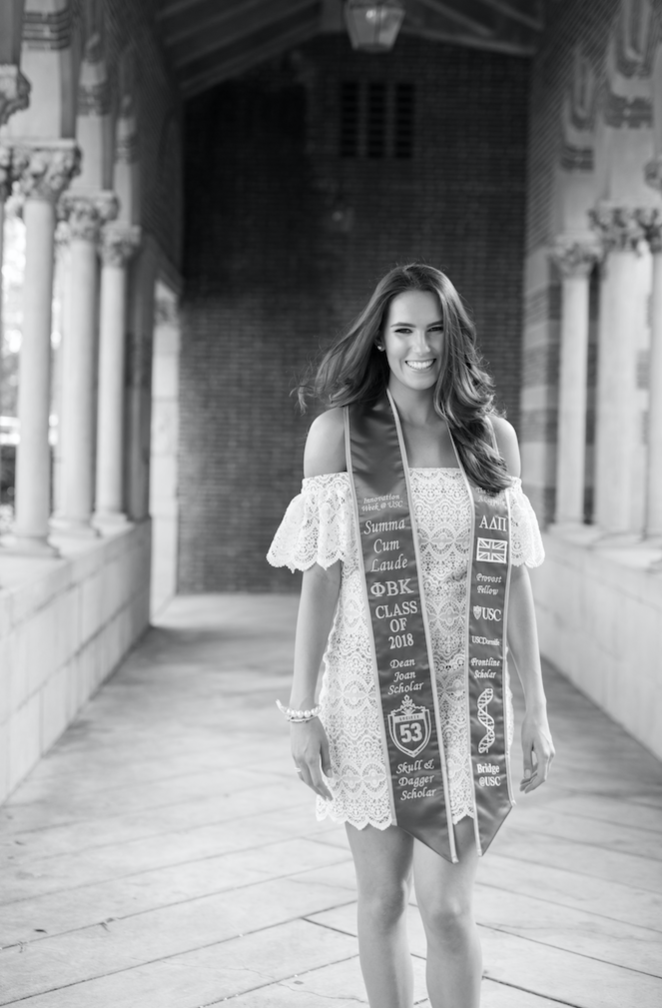Alumna Sophia Wix receives Fulbright Open Study award
Ever since her friend’s brother died at 13 years old from a brain tumor, alumna Sophia Wix has had a passion for cancer research.

Alumna Sophia Wix received the Fulbright Open Study Award this year, an honor given to just two American scholars each year. Photo courtesy of Sophia Wix.
She’s worked in a lab since she was 16 years old, doing research at the Genomics Research Institute in Phoenix, Ariz.
Now, Wix, who graduated from USC with a bachelor’s degree in health and human sciences in December, is the first Trojan in University history to receive the coveted Fulbright Open Study award in the United Kingdom.
Only two students from the United States are selected for this honor every year.
Wix has been interested in becoming a Fulbright Scholar since she was in the fourth grade. She was inspired by her cousin, who studied ballet in Germany.
Wix has been working toward receiving her Fulbright fellowship since her freshman year at USC.
“The mission [of Fulbright] really resonated with me because it’s all about service and leadership [and] about cross-cultural exchange and sharing of ideas and about ambassadorial potential,” Wix said. “Having been selected as a Fulbright Scholar has really helped open my eyes to know what a strong country we have and how much we have to learn from other nations.”
Wix was awarded her fellowship to research proteomics, or studies of protein sets, of breast cancer subtypes to improve diagnostics and precision treatments.
She will be pursuing a Master of Philosophy in Medical Science at the Cancer Research UK Cambridge Institute under Carlos Caldas. Wix said she was amazed by Caldas’ work when she saw him present his research at an American Association for Cancer Research conference.
Wix has worked under the Dornsife College of Letters, Arts and Sciences research professors James Hicks and Peter Kuhn in their laboratory developing the proteomics of circulating tumor cells, which allow scientists to analyze cancer cells at their protein levels and understand how a tumor interacts with the entire body.
Hicks was impressed with Wix’s maturity and commitment to science, and said she was more of a colleague than a student.
“She stood out as a forthright person who was passionately dedicated to the concept of science,” Hicks said. “That’s what drives us to stay in academia [and] to pursue translational clinical science where the rewards are much less than they might be in other fields. You just [have] to have that in your nature.”
Hicks said Wix’s combination of academic achievements and her ability to present herself professionally differentiated her from the competition, as Fulbright is focused on the diplomatic relationship as well.
“I fell in love with this kind of research [in] translational medicine and the power of genomics to transform personalized and precision medicine,” Wix said.
Wix said she is nervous because there is a lot to live up to, but that she hopes to give back to those who have helped her get to this point in her career.
“I hope to change the world [and] I hope to cure cancer; I’m not afraid to say it,” Wix said. “It sounds ambitious but this is the purpose of my life and if Fulbright is the next step for that then I’m tremendously honored.”
